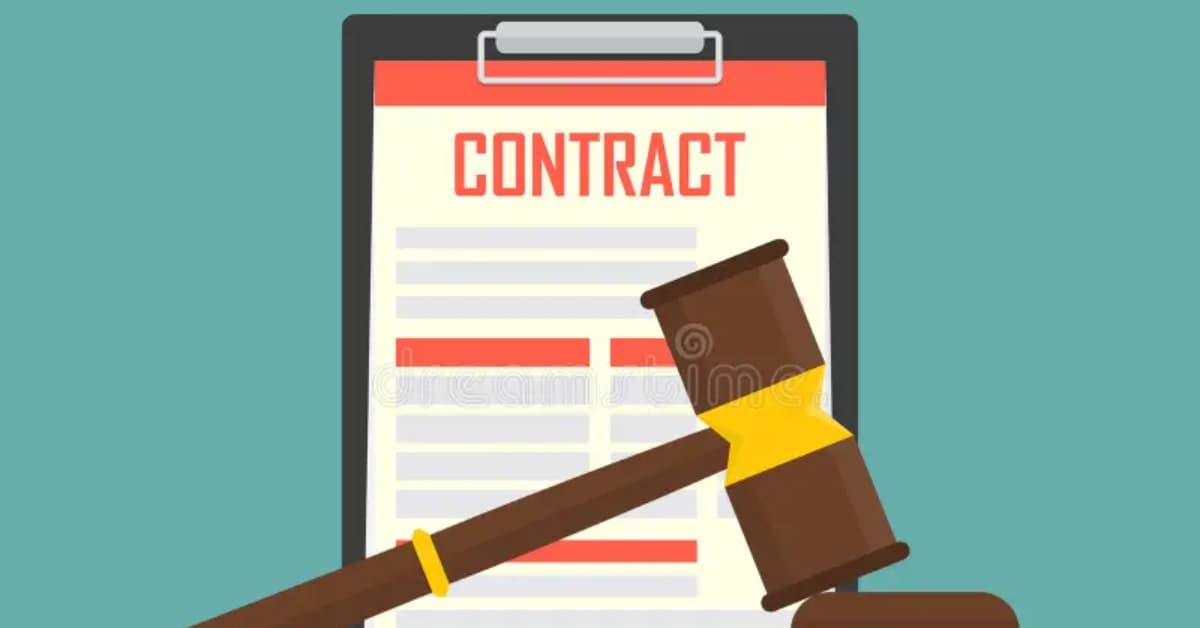Welcome to our guide on understanding contracts and regulations in real estate transactions
Whether you are a buyer, seller, or investor, having a clear understanding of property contracts and legal regulations is essential for a smooth and successful real estate transaction. In this article, we will explore the key aspects of property contracts, the importance of compliance with real estate regulations, and how to handle property disputes and litigation. Let’s dive in!
Key Takeaways about Understanding Contracts and Regulations
- Property contracts are crucial in real estate transactions, as they outline the terms and conditions of the purchase or sale.
- Understanding legal regulations is essential for ensuring compliance and avoiding disputes in real estate transactions.
- Properly negotiating property contracts and protecting property rights are vital for all parties involved.
- The closing process involves various steps, such as title searches and reviewing contract terms, to ensure a smooth transfer of ownership.
- Property disputes may arise during or after a transaction, and property contracts can play a significant role in resolving these disputes.
Key Elements of Property Contracts
When it comes to property transactions, understanding the key elements of property contracts is crucial. These contracts serve as the foundation for legally binding agreements between buyers and sellers, landlords and tenants, and other parties involved in real estate transactions.

Contract negotiation is another essential aspect of property contracts. It allows the parties involved to discuss and modify specific terms to meet their needs and protect their interests. Effective negotiation can help ensure a fair and balanced agreement that satisfies both parties.
Property rights are a critical consideration in property contracts. These rights outline the ownership and usage of the property, ensuring that the buyer or tenant has the legal authority to occupy and utilize the property as intended. Clear and unambiguous property rights are crucial for avoiding disputes and protecting the interests of all parties involved.
“Understanding the key elements of property contracts is essential for navigating real estate transactions successfully. By carefully reviewing and negotiating the terms, and ensuring clear documentation and property rights, both buyers and sellers can protect their interests and ensure a smooth transaction.”
– [Real Estate Expert Name], [Real Estate Expert Title]
Let’s take a closer look at the key elements of property contracts with the following table:
| Key Elements | Description |
|---|---|
| Legal Documentation | The necessary paperwork and documentation involved in property contracts, including property descriptions, purchase prices, financing arrangements, and occupancy arrangements. |
| Contract Negotiation | The process of discussing and modifying specific terms in the property contract to meet the needs and protect the interests of all parties involved. |
| Property Rights | The rights outlining the ownership and usage of the property, ensuring that the buyer or tenant has the legal authority to occupy and utilize the property. |
Understanding Contracts and Regulations: Compliance with Real Estate Regulations
In the realm of real estate transactions, compliance with legal regulations is of utmost importance. It is crucial to understand and adhere to the legal framework that governs real estate law and property contracts. Failure to comply with these regulations can have serious implications for both buyers and sellers involved in real estate transactions.
Real estate law encompasses a wide range of legal regulations that govern the buying, selling, and transferring of properties. These regulations are in place to protect the interests of all parties involved and ensure fair and transparent transactions. By adhering to these regulations, both buyers and sellers can have peace of mind knowing that their rights and interests are protected.
One key aspect of compliance with real estate regulations is ensuring that property contracts are legally sound and enforceable. Property contracts outline the terms and conditions of a real estate transaction, including the purchase price, property boundaries, and any additional clauses or contingencies. It is essential to have a thorough understanding of these contracts and to ensure that they adhere to legal requirements.
Property contracts must comply with legal regulations such as local zoning laws, building codes, and disclosure requirements. Failure to comply with these regulations can result in legal disputes and financial consequences. For example, if a seller fails to disclose known defects in the property, they may be held liable for any damages incurred by the buyer.
Compliance with real estate regulations is not just a legal obligation; it is also a necessary step in protecting your investment and avoiding costly disputes.
In addition to property contracts, compliance with real estate regulations also extends to other aspects of the transaction, such as obtaining the necessary permits and licenses. For example, if you are selling a commercial property, you may need to obtain a zoning permit or other regulatory approvals. Failure to obtain these permits can result in legal consequences and may even invalidate the transaction.
By ensuring compliance with legal regulations, buyers and sellers can avoid potential pitfalls and navigate real estate transactions with confidence. It is advisable to seek the guidance of a qualified real estate lawyer who can provide expert advice and ensure compliance with all legal requirements.
Benefits of Compliance with Real Estate Regulations
Compliance with real estate regulations offers several benefits:
- Legal certainty: By adhering to legal regulations, both buyers and sellers can have peace of mind knowing that their transactions are legally sound and enforceable.
- Protection of rights: Compliance with real estate regulations ensures that the rights and interests of all parties involved are protected throughout the transaction process.
- Avoidance of disputes: By complying with legal requirements, buyers and sellers can minimize the risk of disputes and potential litigation, saving both time and money.
- Enhanced reputation: Compliance with regulations reflects professionalism and integrity, enhancing the reputation of individuals and businesses involved in real estate transactions.
Compliance with real estate regulations is essential for a smooth and legally compliant real estate transaction. By understanding and adhering to the legal framework that governs real estate law and property contracts, buyers and sellers can protect their interests and achieve successful outcomes.
| Implications of Non-Compliance | Benefits of Compliance |
|---|---|
| Legal disputes | Legal certainty |
| Financial consequences | Protection of rights |
| Invalidation of transactions | Avoidance of disputes |
| Loss of reputation | Enhanced reputation |
Understanding Contracts and Regulations: The Closing Process
In the realm of real estate transactions, the closing process is a crucial step that marks the finalization of the deal. It encompasses various procedures and documentation that are essential for smoothly transferring property ownership from the seller to the buyer. In this section, we will guide you through the intricacies of the closing process, highlighting the key steps involved and emphasizing the importance of reviewing and understanding the terms of the property contract.
Transfer of Ownership
One of the pivotal elements of the closing process is the transfer of ownership. This step involves the legal transfer of the property title from the seller to the buyer. It requires the completion and execution of necessary legal documents, such as a deed, to ensure a valid and binding transfer of ownership.
Understanding Contracts and Regulations: Title Search and Examination
Prior to the closing, it is essential to conduct a thorough title search and examination. This process helps identify any potential issues or encumbrances on the property title, such as liens, easements, or restrictions. Addressing these issues beforehand can help mitigate any future complications or disputes.
Seeking Professional Assistance
When dealing with property disputes and the potential need for real estate litigation, it is advisable to seek the guidance of a qualified real estate attorney. A skilled attorney can provide valuable advice and representation throughout the resolution process, ensuring your rights are protected and advocating for a fair outcome.
By understanding the importance of property contracts, being aware of the potential challenges that may arise in property transactions, and seeking professional assistance when needed, individuals can navigate property disputes more effectively and safeguard their interests in the dynamic world of real estate.
Conclusion about Understanding Contracts and Regulations
Understanding property contracts is crucial in navigating real estate transactions and ensuring legal compliance. By comprehending the legal regulations that govern these agreements, individuals can safeguard their interests and minimize the risk of property disputes or litigation.

FAQ
What is a property contract?
A property contract is a legally binding agreement between parties involved in a real estate transaction. It outlines the terms and conditions of the transaction, including the purchase price, property description, and any contingencies or conditions that must be met.
Understanding Contracts and Regulations: Why is it important to understand legal regulations in real estate transactions?
Understanding legal regulations is crucial to ensure that real estate transactions are carried out in compliance with the law. Failure to adhere to these regulations can result in legal complications, financial loss, and potential disputes.
What are the key elements of a property contract?
The key elements of a property contract include the identification of the parties involved, the description of the property, the purchase price, terms and conditions, contingencies, and the signatures of all parties involved. These elements ensure that the contract is legally enforceable.
Understanding Contracts and Regulations: Why is contract negotiation important in real estate transactions?
Contract negotiation allows parties to discuss and agree upon the terms of the transaction, protecting their respective interests. It ensures that all parties are satisfied with the terms and helps avoid misunderstandings or disputes later on.
How does a property contract protect property rights?
A property contract clearly defines the rights and obligations of each party involved in the transaction. It establishes ownership, outlines the permitted use of the property, and protects the buyer’s and seller’s interests.
Understanding Contracts and Regulations: What is the role of legal documentation in property contracts?
Legal documentation, such as deeds, titles, and disclosures, is essential in property contracts. These documents provide evidence of ownership and disclose important information about the property, ensuring transparency and protecting the parties involved.
What are the closing procedures in a real estate transaction?
The closing process involves several steps, including the transfer of ownership from the seller to the buyer, a title search to ensure clear ownership, a review of the property contract and documentation, and the disbursement of funds. It is important to review and understand the terms of the property contract before completing the closing procedures.
Understanding Contracts and Regulations: How can property disputes be handled?
Property disputes can be resolved through negotiation, mediation, or, if necessary, real estate litigation. Property contracts play a vital role in resolving disputes by providing a clear framework for addressing conflicts and protecting the parties’ interests.











